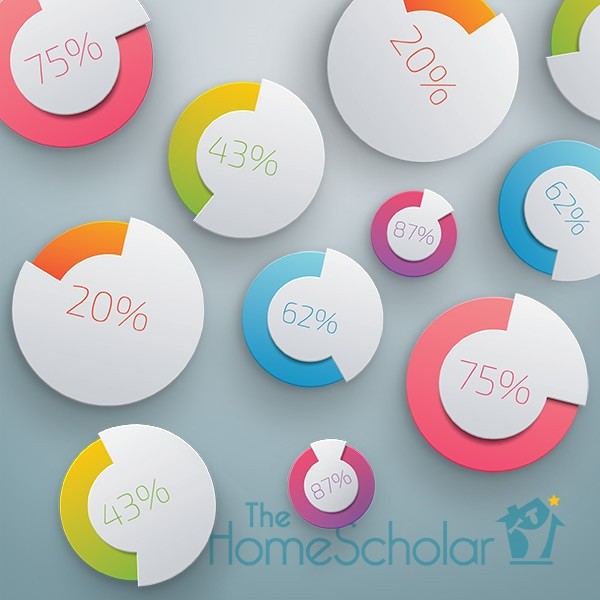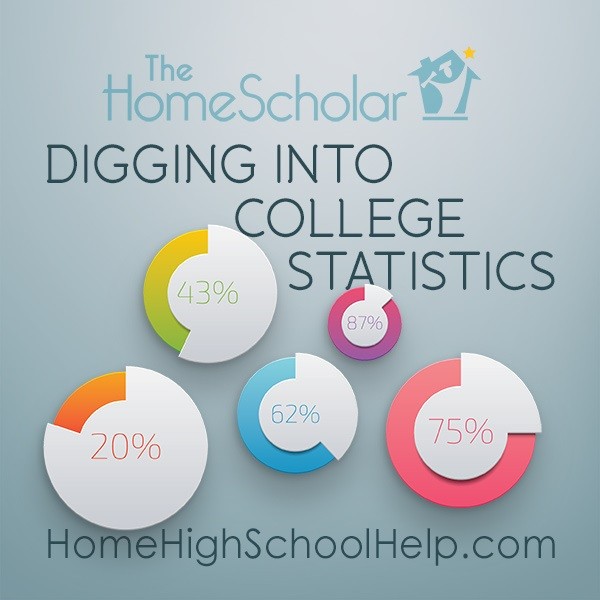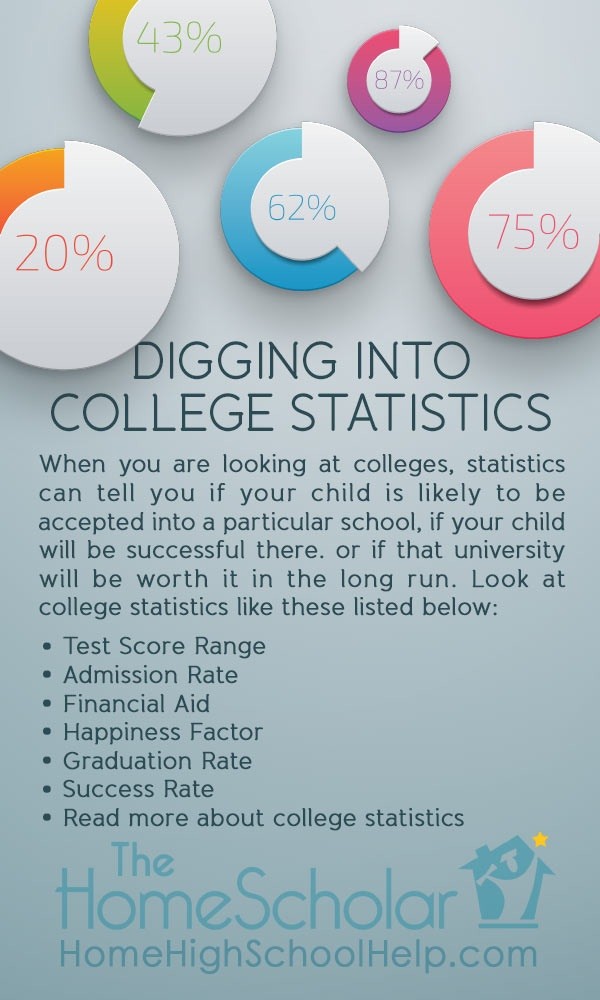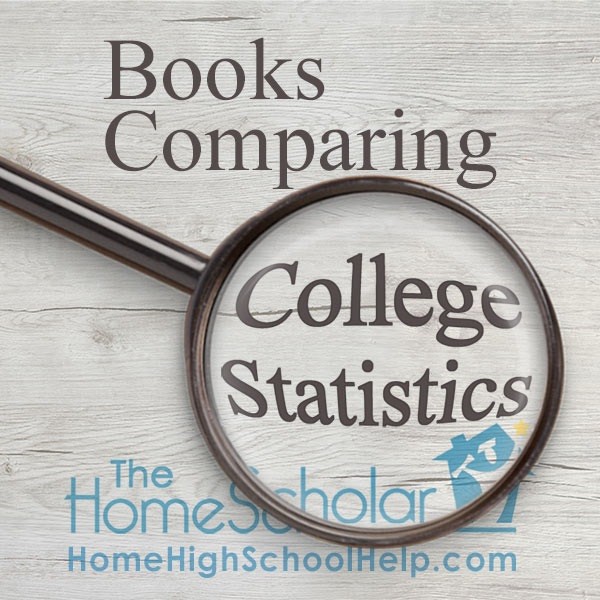Digging Into College Statistics (and what they tell you!)
When you are looking at different colleges, spend some time digging into college statistics before you visit a campus. College statistics may look like little numbers on a page, but they can indicate HUGE differences between colleges, and can explain how some colleges appear "cheap" while others look like a good investment.
You are the high school guidance counselor. Like your counterparts in public and private school, you need a book to explain the differences between colleges. When you are looking for colleges that might be a good fit, it's important to read the fine print. Knowing the numbers and statistics about a college will help your child earn college admission and scholarships. You can compare college statistics using any of these books. (We'll talk more specifically about those books later.) You can also usually find them at your local library.
First, look at college statistics that can indicate if your child will be accepted into that school.
Test Score Range
Does your child's SAT® or ACT® score meet or exceed expectations? If your child's test score is below the range listed, the chance of being admitted is very slim. It may still be possible, but unlikely. If you don't meet the test score range, this is a "reach" school. Learn more about what it means to be a Reach, Fit, and Safety school here.
Admission Rate
How many applicants are accepted? If they only accept 20% of applicants each year, that's on par with Harvard and Yale. Most applicants will be rejected - even if they are highly qualified. If they have a low acceptance rate, the school is a "reach" school for everyone. There are no exceptions for these schools, even students with high test scores.
Second, look at the college statistics that can tell you if your child will be successful at that school.
Financial Aid
Look at the percent of students who receive financial aid. If most students receive financial aid, then it's likely that you will get aid if you meet their expectations.
Happiness Factor
Look at the percentage of students who return to the university after Freshman year. Colleges WANT students to attend for all four years. Returning students mean they are generally happy with the college overall.
Third, look at college statistics that will show if that university will be worth it in the long run.
Graduation Rate
What percent of students actually graduate in 4 years? Parents often assume their children will graduate in 4 years, but that's harder at some schools than it is at others. If many students take 6 years to graduate, you will be paying 50% more for that college.
Success Rate
Find out what percentage of students are employed when they graduate. Look at what percentage of graduates are accepted into graduate programs too. If a large percentage are accepted into law school or medical school, that can indicate success for other students as well.
Read more about college statistics
Look at these books and more to read details about each college. Now listen up, these college books are HUGE - really as big as the old "Yellow Pages" from a major city! Bigger than a college Chemistry book! So here is what you need to do... read JUST the pages with the 20 or so colleges that you are considering. Don't read the whole book (PLEASE don't read the whole book!) Don't get overwhelmed. But do read every single word about the few colleges you are interested in. Some of the details of college statistics are tiny but can be hugely important.
Before you invest in purchasing or reading these monstrous books, begin your college search at a college fair. Then do your research on the colleges so you can have a manageable list of colleges where you would like your child to apply. In addition to college fairs, visit the college campus in person if possible.. I can explain more about that process in my article, Visit Colleges in the Spring. After your research and college visits, your goal is to have 4-8 colleges where your child will be applying. That will make your reading in the following books much more manageable.
Here are some resources to help you:
The Best 389 Colleges, 2025 by The Princeton Review
Finish up all your college search stuff by the end of junior year, so the first day of senior year you are ready to apply to the colleges that are the best fit!
When you subscribe to the blog, we will send you an e-mail when there are new updates on the site so you wouldn't miss them.

 Login
Login










.jpg)

Comments